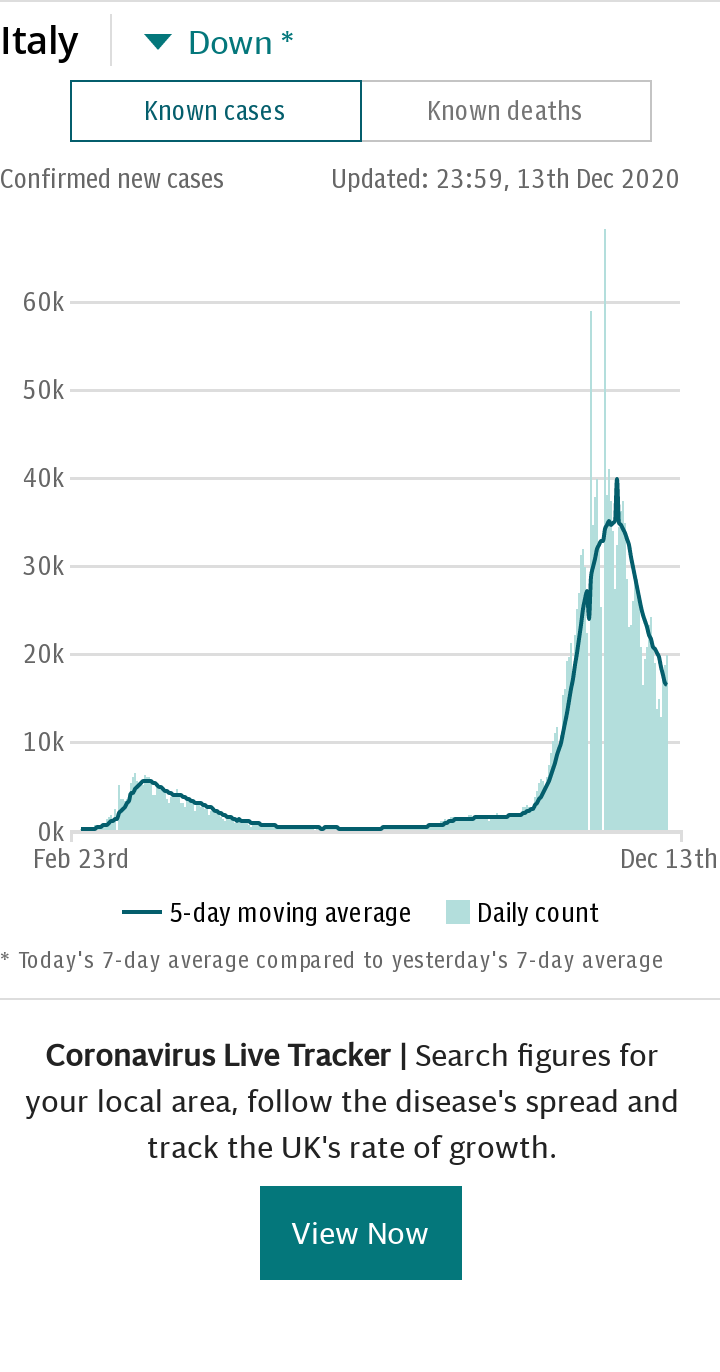Italy records highest number of coronavirus cases since May lockdown

Italy has recorded its highest number of new Covid-19 cases since early May, when the country was still in lockdown.
The Italian authorities reported 1,367 new cases on Wednesday, up from 878 on Tuesday, 953 on Monday and 1,210 on Sunday. The death toll rose by 13 – an increase on the single digits that have been seen in recent days.
The authorities pointed out, however, that a far greater number of swabs were taken on Wednesday – more than 93,000, which was nearly 20,000 more than on Tuesday.
“You have to look at the percentage of swabs that yield a positive result. We are still at around 1.5-2 per cent,” said Matteo Bassetti, a virologist from San Martino hospital in Genoa.
A month ago, it looked as though Italy had managed to get on top of the pandemic, with daily cases down to around 200.

But since then there has been a sharp surge, as there has been in countries like Germany, France, Greece and Croatia.
The largest number of new cases was in Lombardy, which was the epicentre of the pandemic back in March and April.
Around two-thirds of the region’s new cases involve Italians returning home from holiday abroad, said Giulio Gallera, Lombardy’s top health official.
The total number of people who have been infected by the virus in Italy is now at 262,000 and more than 35,400 people have died.
Despite the worrying numbers, the government says there are no plans to impose a second national lockdown.
But the surge is worrying the country as state schools prepare to reopen on September 14, having been closed since early March when the lockdown was imposed.
There are sharp divisions within the government and health experts over whether children should be made to wear face masks at all times, including during class.
Some experts and politicians are arguing that it is unreasonable to expect children to have their faces covered for hours on end.

 Yahoo News
Yahoo News 
